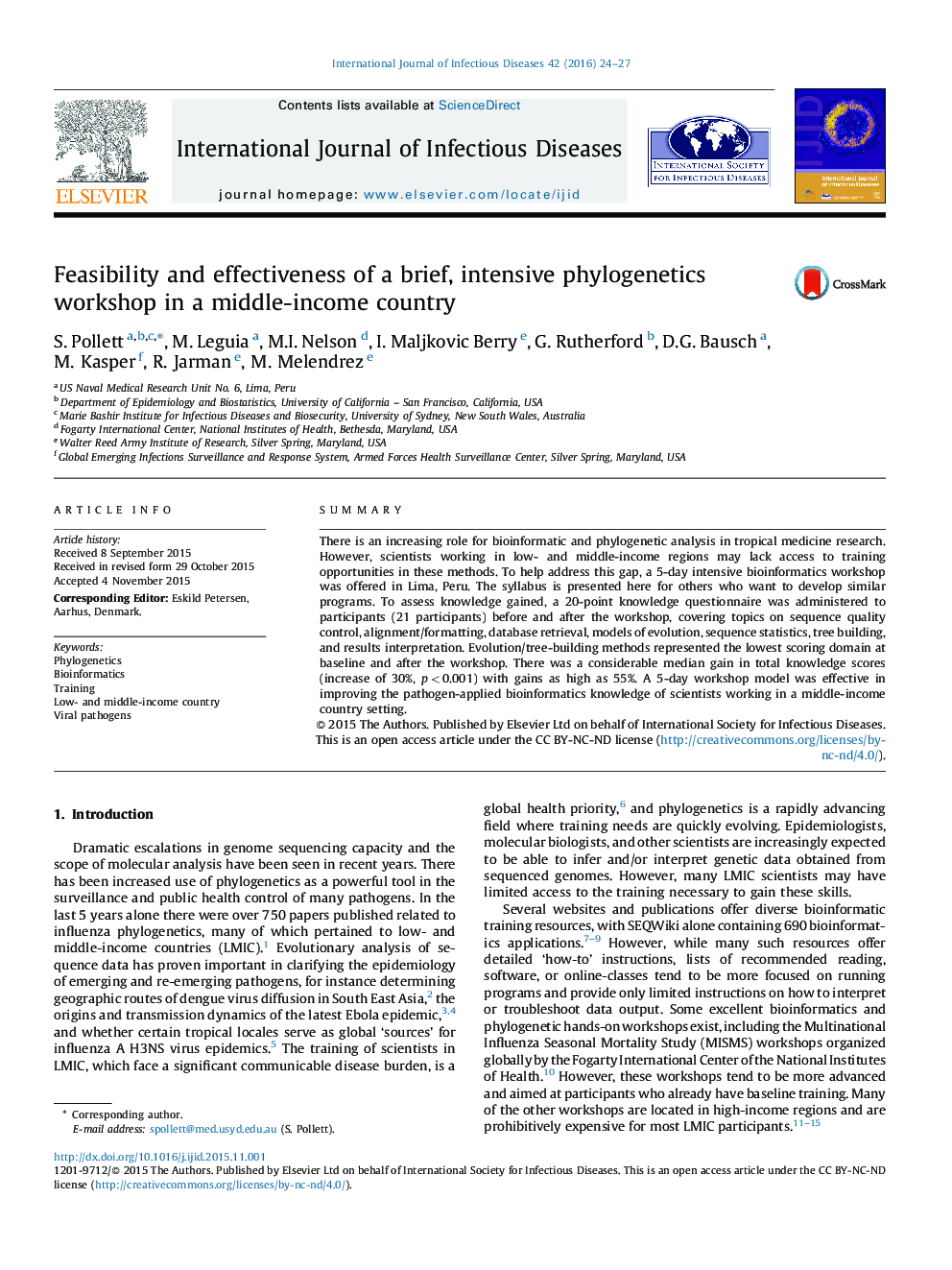| Article ID | Journal | Published Year | Pages | File Type |
|---|---|---|---|---|
| 3361688 | International Journal of Infectious Diseases | 2016 | 4 Pages |
•Scientists working in low- and middle-income countries may lack access to training in phylogenetic analysis.•A brief, intensive pathogen bioinformatics workshop was offered in Lima, Peru.•Assessment of workshop effectiveness identified a 30% median gain in knowledge scores (p < 0.001).•Evolution/tree-building methods were identified as a particular training need.•The syllabus is presented here for others who want to develop similar workshops.
SummaryThere is an increasing role for bioinformatic and phylogenetic analysis in tropical medicine research. However, scientists working in low- and middle-income regions may lack access to training opportunities in these methods. To help address this gap, a 5-day intensive bioinformatics workshop was offered in Lima, Peru. The syllabus is presented here for others who want to develop similar programs. To assess knowledge gained, a 20-point knowledge questionnaire was administered to participants (21 participants) before and after the workshop, covering topics on sequence quality control, alignment/formatting, database retrieval, models of evolution, sequence statistics, tree building, and results interpretation. Evolution/tree-building methods represented the lowest scoring domain at baseline and after the workshop. There was a considerable median gain in total knowledge scores (increase of 30%, p < 0.001) with gains as high as 55%. A 5-day workshop model was effective in improving the pathogen-applied bioinformatics knowledge of scientists working in a middle-income country setting.
